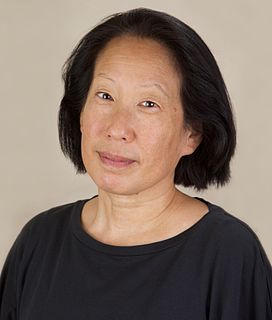A Quote by Rebecca MacKinnon
Intermediary liability enables the Chinese authorities to minimize the number of people they need to put in jail in order to stay in power and to maximize their control over what the Chinese people know and don't know.
Related Quotes
China need to be fought back on. And what we need to do is go at the things that they are most sensitive and most embarrassing to them; that they're hiding; get that information and put it out in public. Let the Chinese people start to digest how corrupt the Chinese government is; how they steal from the Chinese people; and how they're enriching oligarchs all throughout China.
You may be right in believing that if you study hard, one day you might become fluent in English. But you will still look Chinese, and when people meet you, they’ll see a Chinese girl no matter how well you speak English. You’ll always be expected to know Chinese, and if you don’t, I’m afraid they will not respect you as much.
There are photographers who push for war because they make stories. They search for a Chinese who has a more Chinese are than the others and they end up finding one. They have him take a typically Chinese pose and surround him with chinoiseries. What have they captured on their film? A Chinese? Definitely not: the idea of the Chinese.
As many of my colleagues know, TikTok, like other Chinese companies is required under Chinese law to share information with the government and its institutions. There are real concerns that this app could also collect information on users in the United States to advance Chinese counter-intelligence efforts.
Chinese movies are not just about making Chinese local movies. It's about the Chinese money, the Chinese creativeness participating in a global movie. The problem is not the government not supporting this, they of course support this big time. The problem is whether other people are capable of doing the same thing I'm doing.
If you expect the present day school system to give history to you, you are dreaming. This, we have to do ourselves. The Chinese didn't go out in the world and beg people to teach Chinese studies or let them teach Chinese studies. The Japanese didn't do that either. People don't beg other people to restore their history; they do it themselves.
When I first heard that I had won the prize, I thought that it was something for myself, that it was something personal, recognition of my writings. But there is such a strong reaction from Chinese people in particular. It's been very passionate, overwhelming and passionate, Chinese people from all over the world.































